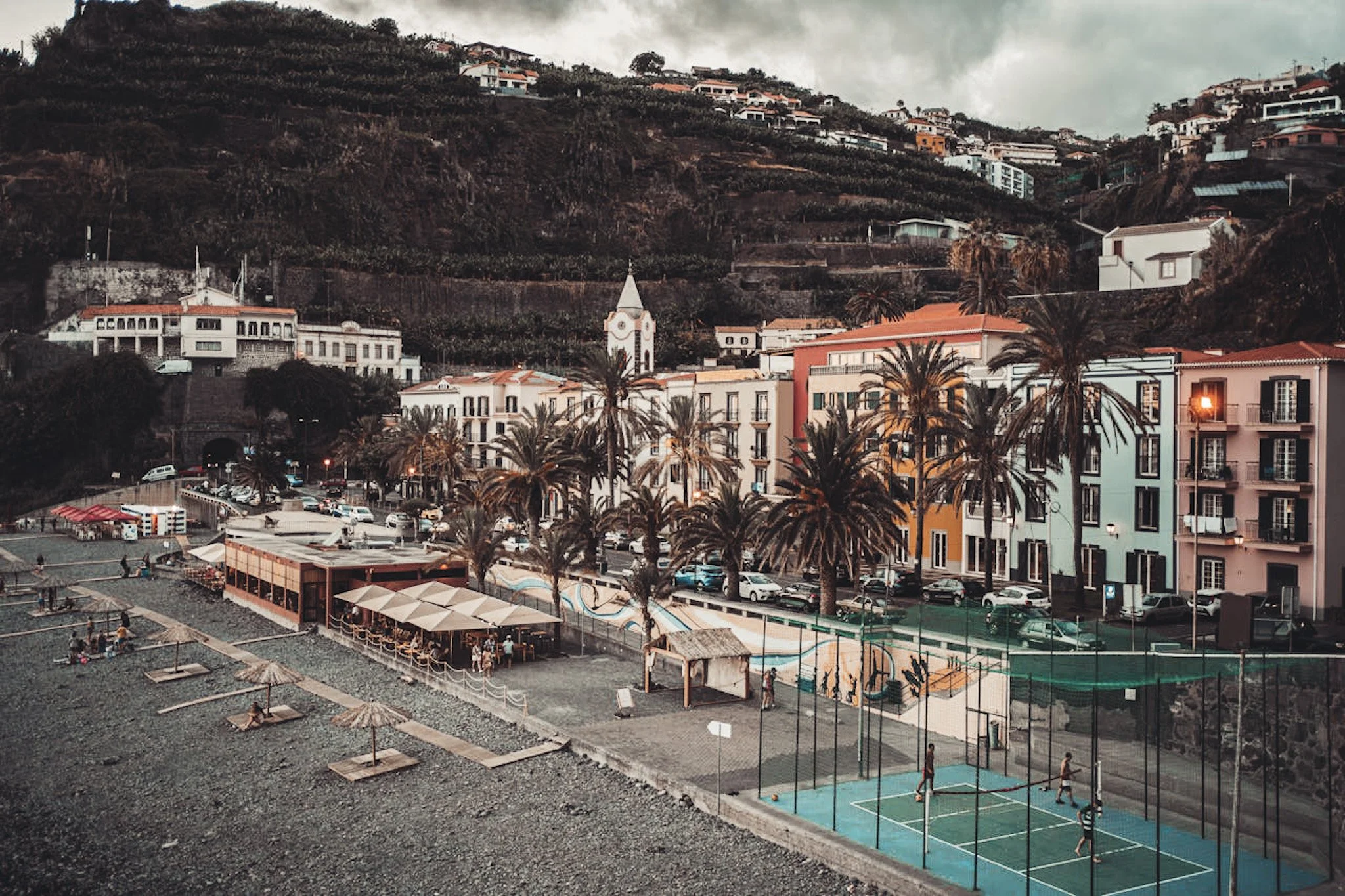How Portugal’s Madeira Island Became a Top Digital Nomad Hotspot
Discover how Gonçalo Hall transformed Madeira Island into one of Europe’s top digital nomad hotspots during the pandemic. Learn how community, strategy, and local collaboration turned a sleepy village into a thriving hub for remote workers.
Imagine a small island in Portugal, mostly known to locals and retirees, suddenly becoming one of the top digital nomad destinations in the world, in the middle of a pandemic.
That’s exactly what Gonçalo Hall, remote work consultant and evangelist, pulled off with his Digital Nomad Village in Madeira Island. In this episode of The Remote Nomad Podcast, we explored how he made it happen and how his work is reshaping the future of work and travel.
Madeira Island, Portugal
From Restless 9-5er to Remote Work Pioneer
How Gonçalo started his digital nomad journey
Before leading the remote movement in Portugal and beyond, Gonçalo was just another office worker in a corporate job in Germany. It paid well, but it wasn’t fulfilling. Like many of us, he hit a wall—asking himself, “Is this really it?”
On his 30th birthday, feeling disconnected from his purpose, he quit. He taught himself email marketing, took a freelance job, and bought a one-way ticket to Bali.
“As soon as I bought that ticket, I suddenly had two full-time offers. Everything changed.” – Gonçalo Hall
It wasn’t just about freedom. It was about finding meaning and eventually, creating something much bigger than himself.
Why Community Is the Real Key to Remote Work Success
While traveling, Gonçalo noticed something important: he wasn’t just chasing cool locations. He was chasing a remote work and digital nomad community. Places like Canggu in Bali and Bansko in Bulgaria stood out, not for their scenery (though stunning) but for the connections and support systems they offered remote workers.
“I never travel to places. I travel to communities.”
This insight became the backbone of the Digital Nomad Village concept: if you want people to thrive remotely, give them more than Wi-Fi and a coworking space. Give them a vibrant community where they feel seen, supported, and inspired.
The Birth of Madeira’s Digital Nomad Village
How Gonçalo Gained Local Buy-In
Madeira wasn’t an obvious choice. But Gonçalo saw its potential: ocean views, dramatic mountains, affordable living, and a climate that rivals Hawaii.
More importantly, he saw a unique opportunity to repopulate quiet towns using remote work. He pitched the idea to local leaders: build a hub for digital nomads in Ponta do Sol, a small village on the island, and let the economic and social ripple effects begin.
But he didn’t just pitch it—he hit the ground, door to door, educating local business owners about remote work and what nomads were looking for.
“We helped restaurants add vegetarian options, upgraded the local internet, and made sure nomads felt truly welcome.” – Gonçalo Hall
Ponta do Sol in Madeira Island
Launching During a Pandemic? Wild... but Brilliant
Most people wouldn’t launch a tourism project during a global crisis. But for Gonçalo, COVID-19 became an unexpected accelerator.
As remote work went mainstream, thousands of workers suddenly realized they could work from anywhere. Madeira offered not only natural beauty but stability: on-arrival testing, reliable rules, and an open economy when much of Europe was in lockdown.
“We didn’t spend a single euro on marketing. It was all word of mouth.” – Gonçalo Hall
The result? Over 150 digital nomads arrived in the early days, filling cafes, boosting restaurants, and revitalizing the village economy.
What Makes This Community So Special?
At the heart of it all is connection. From daily beach swims and CrossFit classes to yoga and Skillshare sessions, the Digital Nomad Village doesn’t just attract remote workers, it integrates them.
And Gonçalo’s secret? It’s simple: have a community manager.
“You need one person whose only job is to connect people and create opportunities for them to connect. That’s it.” – Gonçalo Hall
Over time, the village evolved. Events started running themselves. Locals and nomads began collaborating. New friendships and even businesses have been formed.
A Win-Win for Locals and Nomads Alike
Nomads Contributing Beyond Tourism
One of the most powerful aspects of this project is how it was collaborative from the start. Gonçalo ensured locals were not left behind.
Restaurants adapted their menus.
Property owners learned what digital nomads needed.
Supermarkets adjusted their hours and offerings.
NGOs began partnering with nomads for community projects.
“We didn’t just arrive. We prepared the town for what was coming—and that’s why it worked.”
Nomads even helped local shelters with pet photography and marketing, joined beach cleanups, and supported schools through workshops.
So, What’s Madeira Actually Like?
If you’ve never been, picture this: within five minutes, you can go from swimming in the Atlantic to hiking through cloud-covered mountains. With over 200 official trails, Madeira offers an outdoor lifestyle few places can match.
It’s also affordable. A full lunch with wine? Around €8–10. Local cafes are laptop-friendly, and co-working spaces are abundant.
“Madeira is like Hawaii, but 10 times cheaper.” – Gonçalo Hall
Want to explore other top spots? Check out the Top 10 Cities to Live in as a Digital Nomad.
View of Madeira Island, Portugal
How to Visit or Stay Long-Term
For Schengen Zone Citizens
If you’re in the Schengen zone, you can fly directly to Madeira and register online at digitalnomads.startupmadeira.eu. There’s no fee, it’s all community-driven.
Once registered, you’ll be invited into the Slack group where you can:
Ask questions
Meet people ahead of your trip
Join daily events (there are up to five per day!)
For Non-Schengen Applicants
If you're from outside the Schengen Zone, you'll need to apply for a D7 visa. Gonçalo is actively lobbying the Portuguese government to offer a dedicated remote work visa… stay tuned.
What's Next? The Global Remote Work Revolution
Madeira is just the beginning. Gonçalo is now working with governments around the world, including Cape Verde, to build more intentional nomad communities that blend impact with lifestyle.
His vision is clear: the future belongs to countries that don’t just offer a visa, but create connection and purpose for remote workers.
“Visas are great, but if you don’t have a community, what’s the point?” – Gonçalo Hall
Gonçalo believes South America and Africa will be the biggest winners post-pandemic if they lean into the power of community, affordability, and natural beauty.
Final Thoughts
Gonçalo’s work isn’t just about building a village, it’s about redefining what remote work can look like for both workers and local economies.
If you’re a digital nomad, Madeira isn’t just a place to work, it’s a place to belong.
And if you’re a government or destination looking to attract remote workers? Take notes: the blueprint has already been written.
“Madeira’s success didn’t happen by chance. It happened because one person decided to build more than just a coworking space; he built connection. And that’s the future of remote work.”
Want more stories like this in your inbox? Get weekly insights, digital nomad tips, and remote job opportunities — straight to your inbox by joining the FREE Nomad News Newsletter
Podcast Speakers
Gonçalo Hall, Remote Work Consultant and Evangelist
Gonçalo Hall, Remote Work Consultant, and Evangelist
Gonçalo Hall is a remote work consultant and evangelist. He’s the man behind The Remote Work Movement, Future of Work Conferences, Remote Portugal, and Remote Europe in order to help the remote work movement grow and spread. The Digital Nomad Village is Gonçalo’s most recent project, being developed in Ponta do Sol, Madeira island, where he is building a community of digital nomads focused on positive local impact and connections. He is also the host of the Remote Movement Podcast where he interviews people making a ruckus in the remote world.
→ Connect with Gonçalo on LinkedIn: https://www.linkedin.com/in/goncalohall/
→ Connect with Gonçalo on Instagram: https://www.instagram.com/gonzohall/
→ Learn more about Madeira: https://digitalnomads.startupmadeira.eu/
Kate Smith, Remote Career Coach
Kate Smith, Remote Career Coach, Speaker, and Remote Work Advocate
Remote Career Coach and industry thought leader, Kate has helped countless professionals break free of the 9-5 and create more freedom in their lives by showing them how to successfully land a remote job.
Her expertise has been featured on BBC, Fast Company, CNN, Atlas Obscura, Glassdoor, and many other major publications and podcasts. She was named 'The 100 Most Influential Remote Experts' by remoteweekly.io, and she’s even worked with the country of Estonia, as a digital nomad community representative, to create the world’s first digital nomad visa!
After breaking free of her corporate 9-5 job in advertising, she landed a full-time remote job doing online marketing before launching her business. After successfully going remote herself, Kate's now on a mission to help other ambitious professionals create more freedom so they can live life on their terms, too!
→ Ready to land a remote job so you can create more freedom and flexibility? Join The Remote Career Accelerator
→ Follow Remote Career Coach, Kate Smith, on Instagram @theremotenomad
→ Download the FREE Remote Resume Revamp Checklist here: https://bit.ly/ResumeRevampChecklist








